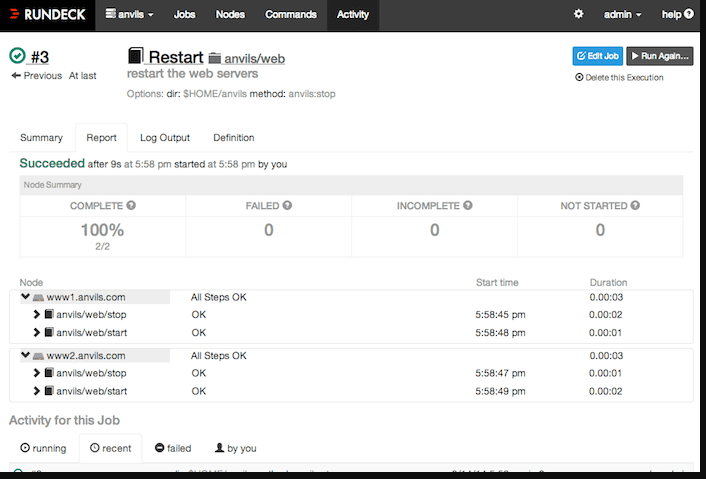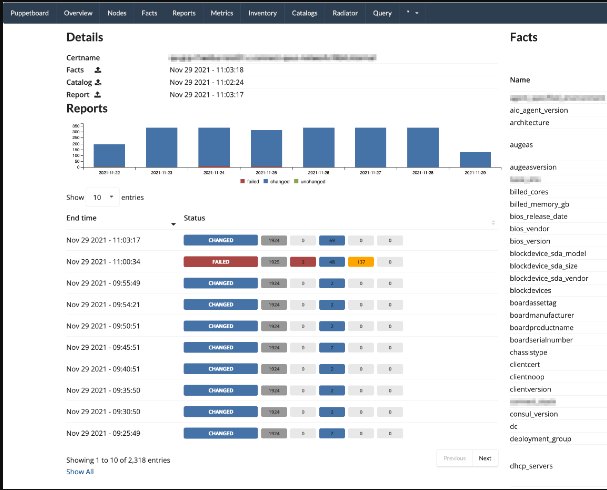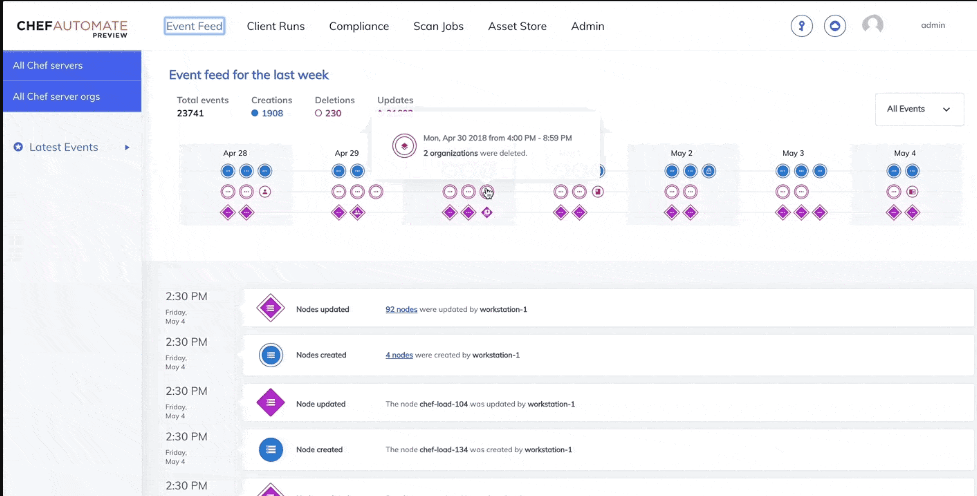Find out some best Ansible alternatives available to automate various tasks and operations for you in a data center or cloud environment.
Ansible is an open-source tool that automates the configuration and administration of systems. This ranges from simple to highly complex tasks. The tool offers great modularization. A special feature of Ansible is that the open-source software can work with minimal requirements: The managing devices only need OpenSSH and Python. Nevertheless, the tool offers all important techniques to automate configuration, administration, and orchestration.
It can be operated via the relatively simple language YAML, which further lowers the entry hurdle. Another special feature of Ansible is that when working remotely, there is no need to install an agent on the target system.
The free version of Ansible suffers somewhat from the fact that the command line and graphical user interface are not always up to date. For professional use, the enterprise variant Ansible Tower from Red Hat offers a slightly more comfortable operation and functions such as a dashboard, a role system for users, visually prepared inventory management, and technical support.
However, it is not the only tool that offers the facility of automation to Administrators there is a couple of other good alternatives to Ansible with good reputations. And here in this article, we see what are those.
Best Open Source Alternatives to Ansible
The Ansible alternative tools for server configuration and automation given in the below list are in random order as per popularity and we have just listed them to give you help in research before settling on some particular tool for your organization.
1. Rundeck -automation platform
Rundeck is a popular free and open-source software and an alternative to Ansible for automation, it also offers a web-based GUI for this and allows you to delegate jobs. The software Rundeck is suitable for automating routine tasks with a number of features that make it easy to scale up your automation efforts including access control, workflow building, scheduling, logging, and integration with external sources for node and option data.
Rundeck can also be connected to popular tools such as Puppet, Saltstack, and Ansible. The Rundeck integration for Foreman allows you to export managed hosts from Foreman for Rundeck.

2. Puppet – software configuration management tool
Puppet is an open-source project with enterprise support. The admin tool allows the automated configuration of computers and servers as well as the services installed on them. The field of application ranges from single servers to large computer network systems.
Puppet is based on the client-server operating principle, on the server the “PuppetMaster” is resident. It keeps all configurations of the computers active in the network. The current actual state of the system is determined and compared with the target state stored for the configuration.
A “PuppetReport” is made available to the master and documented via a database entry. The “PuppetDashboard” software visualizes all status messages on the administrator’s user interface.
It is written in Ruby, and the configuration management tool is designed to be cross-platform. Apart from the Linux systems, with some limitations, Windows systems can also be configured and managed with Puppet.

3. SaltStack
Salt is another Ansible alternative that was initially used as a system for remote execution as part of system administration. SaltStack or Salt for short is used for automated control and monitoring of the infrastructure.
It offers a modular structure and can be used both with and without agents (agent-less). Salt distinguishes itself from similar systems such as Ansible, Chef, or puppet by its versatility.
The Salt Configuration Automation extension uses a simple YAML syntax as well as Jinja templates for the optional imperative or declarative definition of software configurations. Salt can manage various Unix and Unix-compatible systems (BSD, Linux) as well as macOS and Windows clients.
Salt not only distributes pre-built configurations but is also able to respond to events that exchange internal components of the software as well as the distributed systems in the managed infrastructure.

4. Cfengine
CFEngine provides a versatile solution for DevSecOps teams to automate day-to-day tasks. It also offers both community (open source) and Enterprise (commercial editions GPL), however, the community one will have fewer features as compared to the paid one.
The offering of the CFengine open-source edition is Configuration management, Autonomous agents, Linux support, Technical documentation, and support.
The Customizable & Shareable GUI Dashboards can be used for getting real-time compliance levels, performance monitoring, and custom alerts & actions.

5. Chef – Automation software
Chef can also be considered to replace Ansible. It is an open-source configuration management software that automates relevant server administration processes. Configurations can be tested, versioned, and replicated, better support promises a paid enterprise version.
The software client application is written in DSL (Domain-specific Language) Ruby and the server is in Ruby/Erlang. The application is based on a classic master-client system architecture. This applies to both the freely available, open-source “Community” version and the paid “Enterprise” tool.
Chef provides the relevant reporting and monitoring tools on a web console. This is available to both developers and administrators. To manage and configure the working of server applications and accompanying utilities, Chef uses a configuration file called Recipes (read: recipe). Recipes authored in Ruby programming language define everything that is required to configure part of a system.
For ease of administration and clarity, the recipes created are summarized in a cookbook. In this way, instructions and status descriptions are stored, for example, packages to install; services to be performed or Files to be executed.

Other Articles:
Internet Download Manager (IDM) Alternatives
Best 7-ZIP alternative extracting software for Windows
Best alternatives to LastPass to store password
7 Best Adobe Photoshop alternatives for Linux
12 Best alternatives to replace Windows 10 to some extent